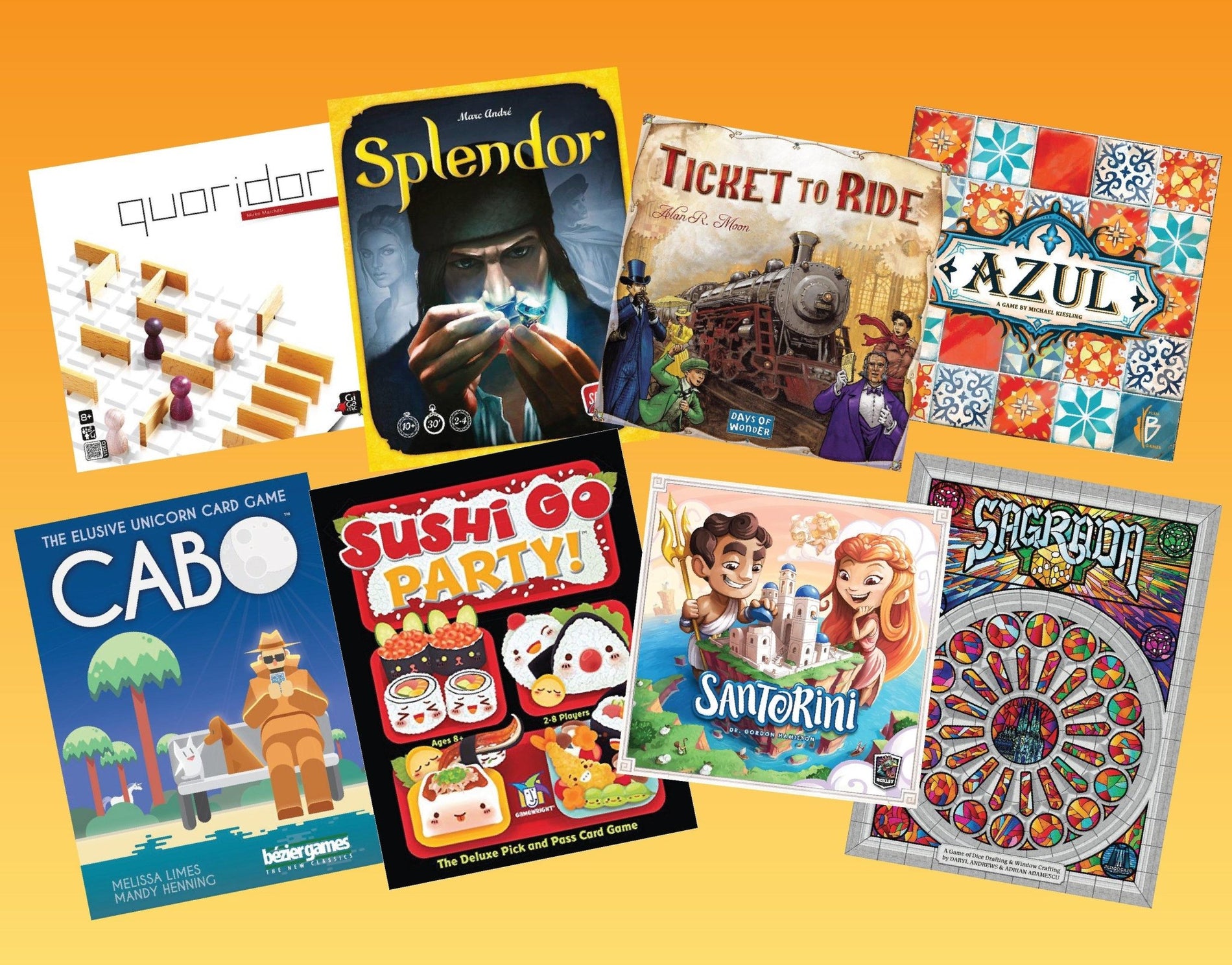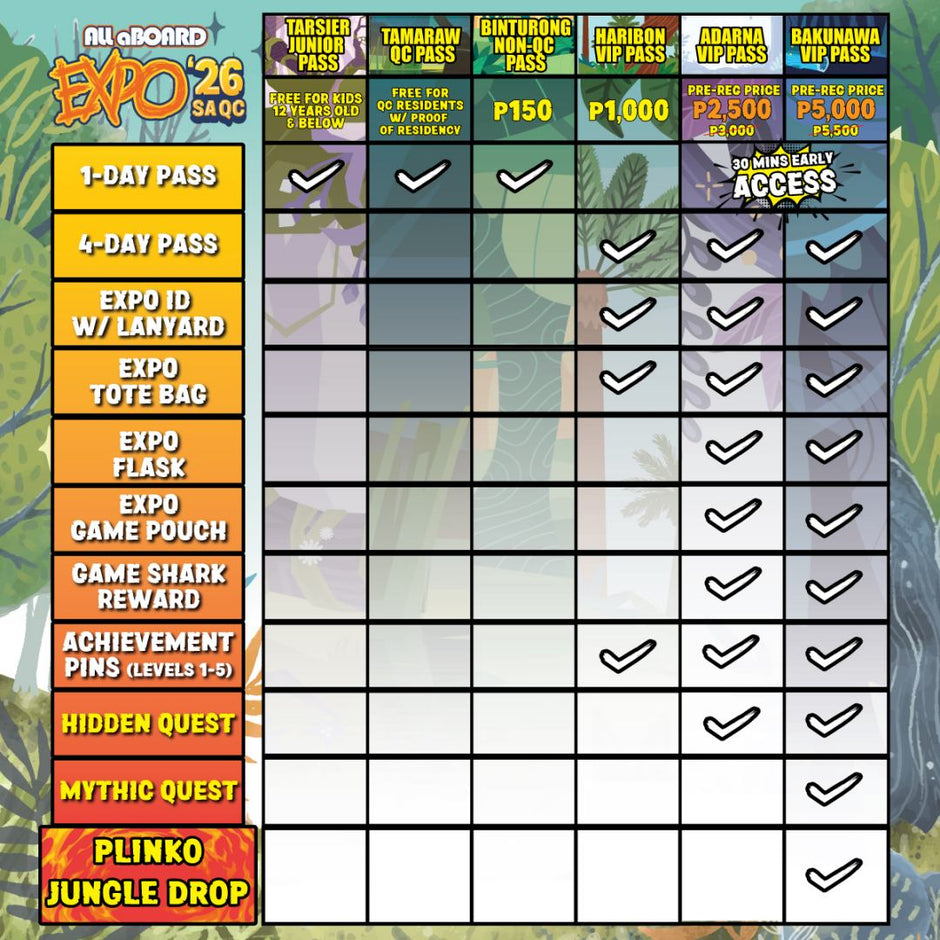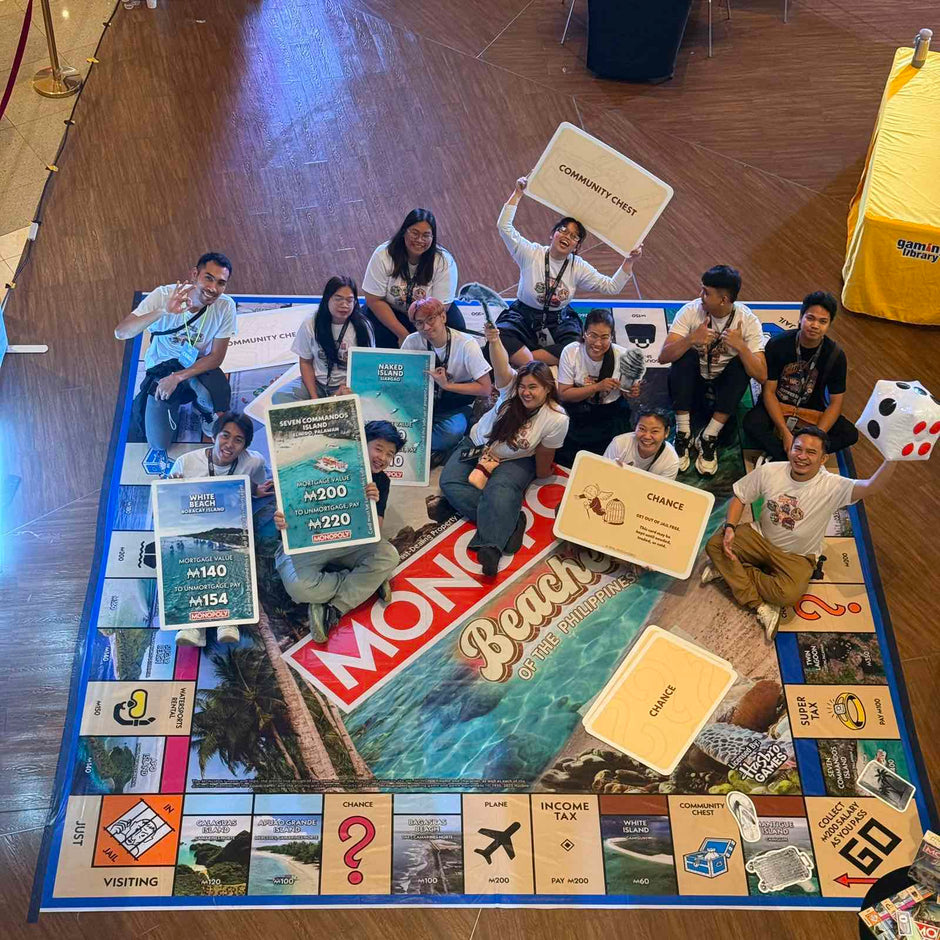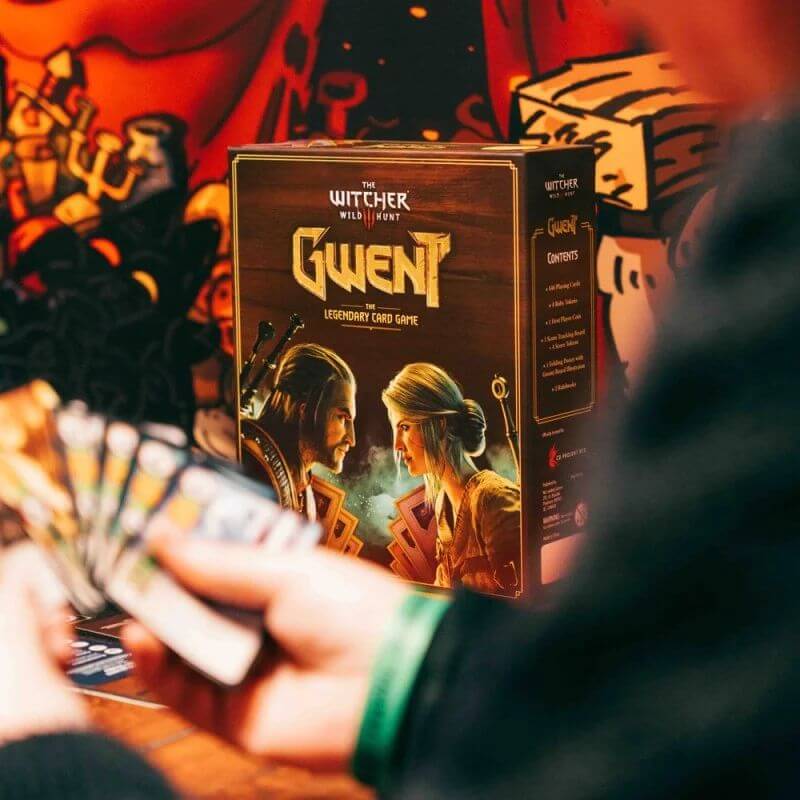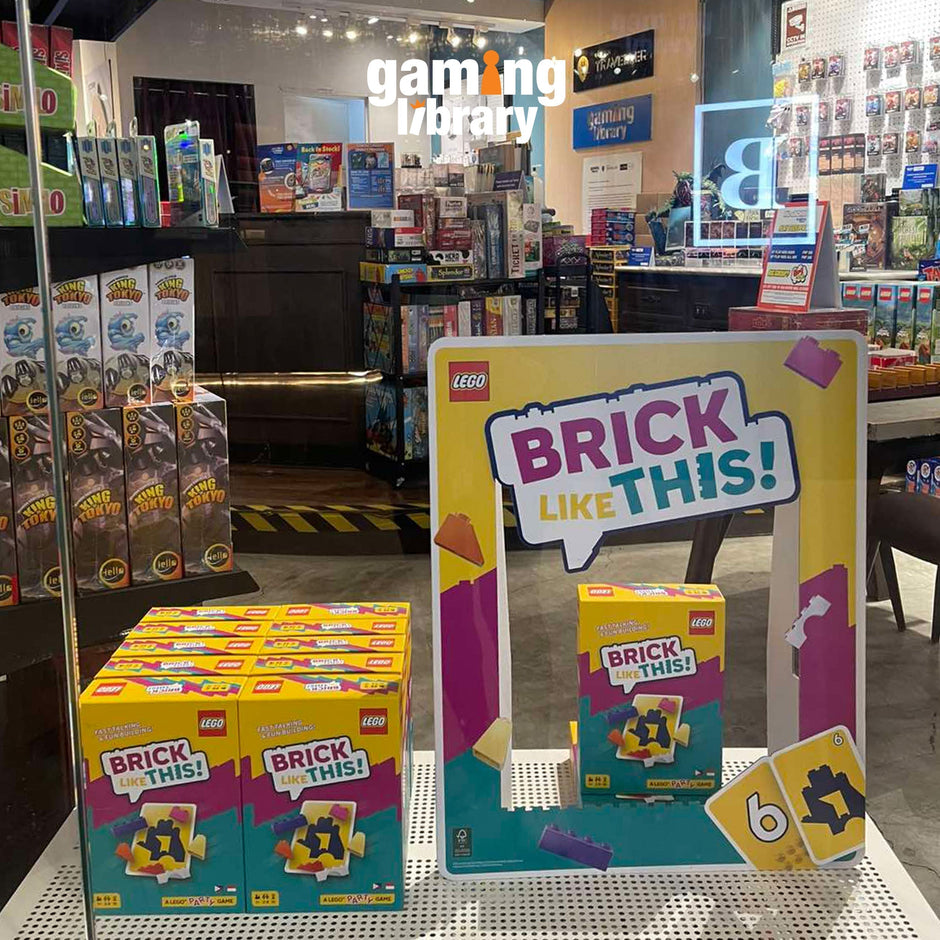CRITICAL THINKING AND PROBLEM SOLVING
Decision Making, Probability games that develop decision making skills, inductive logic
The abstract strategy game Quoridor is surprisingly deep for its simple rules. The object of the game is to advance your pawn to the opposite edge of the board. On your turn you may either move your pawn or place a wall. You may hinder your opponent with wall placement, but not completely block him off. Meanwhile, he is trying to do the same to you. The first pawn to reach the opposite side wins. Number of Players: 2-4 Playing Time: 15 minutes Recommended Age: 8+

Splendor is a fastpaced and addictive game of chip-collecting and card development. Players are merchants of the Renaissance trying to buy gem mines, means of transportation, shops all in order to acquire the most prestige points. If you're wealthy enough, you might even receive a visit from a noble at some point, which of course will further increase your prestige. Number of Players: 2-4 Playing Time: 30 minutes Recommended Age: 10+

Spy, swap, and peek to find Cabo the unicorn in this simple card game. Your goal in CABO is to minimize the total value of your cards, but you don't know what all your cards are at the beginning of the game. By using certain powers to peek at your own cards, spy on your opponent's cards, or swap a card with an opponent, you can try to minimize the value of your cards. When you think you have the lowest value, you can call "CABO" to end the round, but everyone else gets another turn. In the end, the player with the lowest total wins; can you shed your cards quicker than your opponents? Number of Players: 2-4 Playing Time: 45 minutes Recommended Age: 8+

Sushi Go Party!, an expanded version of the best-selling card game Sushi Go!, is a party platter of mega maki, super sashimi, and endless edamame. You still earn points by picking winning sushi combos, but now you can customize each game by choosing à la carte from a menu of more than twenty delectable dishes. What's more, up to eight players can join in on the sushi-feast. Let the good times roll! Number of Players: 2-8 Playing Time: 20 minutes Recommended Age: 8+

CRITICAL THINKING AND PROBLEM SOLVING
Spatial Reasoning games that develop the capacity to think about objects in three dimensions and to draw conclusions about those objects from limited information
With elegantly simple gameplay, Ticket to Ride can be learned in 3 minutes, while providing players with intense strategic and tactical decisions every turn. Players collect cards of various types of train cars they then use to claim railway routes in North America. The longer the routes, the more points they earn. Additional points come to those who fulfill Destination Tickets or goal cards that connect distant cities; and to the player who builds the longest continuous route. Number of Players: 2-5 Playing Time: 30-60 minutes Recommended Age: 8+

In the game Azul, players take turns drafting colored tiles from suppliers to their player board. Later in the round, players score points based on how they've placed their tiles to decorate the palace. Extra points are scored for specific patterns and completing sets; wasted supplies harm the player's score. The player with the most points at the end of the game wins. Number of Players: 2-4 Playing Time: 30-45 minutes Recommended Age: 8+

Santorini is a highly accessible pure strategy game that is simple enough for an elementary school classroom. But with enough gameplay depth and content for even hardcore gamers to explore Number of Players: 2-4 Playing Time: 20 minutes Recommended Age: 8+

Draft dice and use the tools-of-the-trade in Sagrada to carefully construct your stained glass window masterpiece. In more detail, each player builds a stained glass window by building up a grid of dice on their player board. Each board has some restrictions on which color or shade (value) of die can be placed there. Special tools can be used to help you break the rules by spending skill tokens; once a tool is used, it then requires more skill tokens for the next player to use them. The highest scoring window artisan wins! Number of Players: 1-4 Playing Time: 30-45 minutes Recommended Age: 14+

Check out the whole collection here!
Since you've read this far here's a prize: worldteachersday
Use this code on Oct. 5-6, 2019 for a 10% discount!


